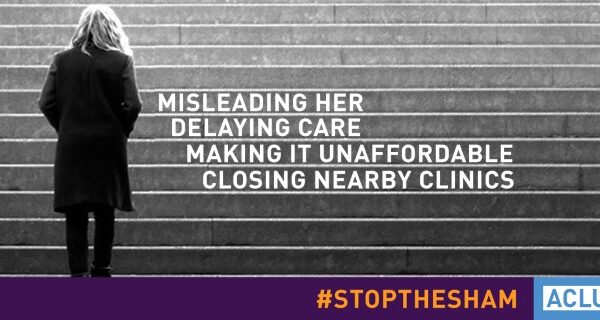FOR IMMEDIATE RELEASE
January 22, 2016
Lincoln, NE--Exactly 43 years ago today, the Supreme Court recognized that the Constitution protects a woman’s right to decide to have an abortion.
But since the Court decided Roe v. Wade in 1973, states have passed more than 1000 restrictions that make it much harder for a woman who has decided to have an abortion to actually get one. In 2015 alone, 57 new restrictions on abortion access were added to the books.
These laws require doctors to provide inaccurate information to their patients, force a woman to make medically unnecessary extra trips to the clinic, require a woman to view an ultrasound before she can have an abortion, and prohibit her from using her insurance to pay for it.
In Nebraska, a woman who has made the decision to have an abortion is subjected to waiting periods and coercive counseling. For women in many parts of Nebraska, the nearest abortion provider is several hours away.
In March, the Supreme Court will hear Whole Woman’s Health v. Cole, one of the most important cases on abortion access in decades, which will determine what kind of hurdles lawmakers can put in the way of a woman seeking an abortion.
“The ACLU continues to believe that a woman who has decided that an abortion is right for her and her family ought to be able to get the care she needs without interference from politicians,” said Danielle Conrad, Executive Director of the ACLU of Nebraska. “On the anniversary of Roe v. Wade we call on legislators to leave the decision where it belongs with women their families and their doctors.”
Related Content

A Nebraska Reflection on Roe at 43
Stay Informed
Sign up to be the first to hear about how to take action.
By completing this form, I agree to receive occasional emails per the terms of the ACLU’s privacy statement.
By completing this form, I agree to receive occasional emails per the terms of the ACLU’s privacy statement.

